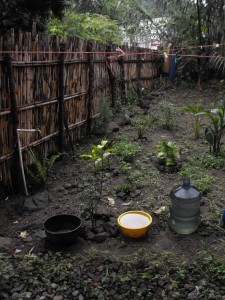 Do you practice water conservation at home? Once you become mindful of water use, you begin to notice how easy it is to save clean water from being wasted.
Do you practice water conservation at home? Once you become mindful of water use, you begin to notice how easy it is to save clean water from being wasted.
Here we are – a third of the way through the 17 Sustainable Development Goals (SDGs) set out by the UN – Goal 6: Clean Water and Sanitation. Water is a basic human right, accessible, clean water, is a birth right that has been taken from the reach of far too many citizens and living creatures on this planet. As water becomes more polluted across the globe, the injustices associated with it become crystal clear. A portion of the population has taken this resource for granted; a growing population is deprived of it.
While I did learn about water conservation growing up from family members – turn off the tap when brushing your teeth, an oldie, but a goodie – I didn’t quite understand the true nature of its importance until I lived months without regular access to running water.
Looking back on those months living on an island where I got to fill a large garbage pail once a day with water, I didn’t apply the scarcity to everyone in the neighbourhood, I thought it was just where I was staying. Fast forward a year to when I lived in a small rural town in Guatemala, that’s when I began to understand what it means to have neighbourhood wide “shut off times” for town water.
Of course when you know it’s coming, you can plan for it. Fill buckets of water in the morning, because you know at noon the faucets run dry. You get used to living differently and adapt. But what happens when the unexpected comes? Say a hurricane. The weak infrastructure can’t hold up through the downpours with so much erosion happening, and landslides wash away the PVC pipes that were installed by local volunteers to bring water into their community.
It had been a couple of days with no water. We filled jugs at the river to wash our dishes & created an emergency makeshift outhouse at the side of the property. Drinking water was limited since the bridge into town was washed out, and vehicles could not get in with deliveries.
So many emotions were running through me. I wanted it to rain so I could gather clean water. But I knew that with rain came more landslides, more damage to infrastructure, creating a vicious cycle. Here I was in a town with limited resources, the community coming together to re-build the water system, this offered up a hard look at injustice. The realization that there is no escaping this reality, this is life. Even writing about this today brings an overwhelming feeling because I know the depths of the water issue, but I have only scratched the surface in doing my part to make a difference.
The goal of the blogs about the 17 SDGs is to share not only what we are up against, asking the hard question, but also to shine light on people in the world who are making a difference to address these issues as a form of inspiration and motivation.
“Dr. David Suzuki entitled one of his speeches “Are Humans Smarter than Bacteria?” He was not the first to remind us of the analogy of the twenty ninth day. When algae take over a lake, they grow exponentially, doubling every twenty four hours, until the thirtieth day, when they effectively remove all oxygen from the water, killing all other forms of life. Since the algae bloom doubles daily, on the twenty ninth day, it covers only half the lake, a reasonably benign condition as long as one does not take into account the nature of exponential growth”
~Paul Hawken (The Ecology of Commerce – pg. 178)
The above quote highlights two leaders in the world of ecology. The words resonate with me because while I was in Guatemala, most of the projects I was involved with had to do with water. In 2005 Lake Atitlan was hit with Hurricane Stan, and the ecosystem went into shock. The few waste water facilities that did exist were destroyed, resulting in free flowing grey water into the lake for years.
In 2009, the lake and communities surrounding it saw some pretty horrific results of the growing contamination (attributed to more than just waste water). The algae blooms were present and growing daily. The once popular tourist spot known for its pristine lake was losing visitors by the day. Communities depend on visitor for income. The negative impact cycle began to turn again. Where does it start, where does it end?
As for the interconnectedness of water, it almost goes without saying. A sad, but true example of the Tragedy of the Commons. Water flows, it passes from one place to another carrying a story with it. Seldom do we think about how we are treating the water, the ecosystem, because in many nations there are departments run by the municipality that put chlorine or other chemicals into the water that flows to our faucets.
The next time you open your tap splash a little cold water on your face, there’s more to it than meets the eye as the 29th day is quickly approaching. Don’t contemplate the state of the our ecosystem any longer. The time to act is today: so why delay?
I’d love to hear what you think about this topic & learn about initiatives in your community. Please feel free to comment below or on Twitter.



